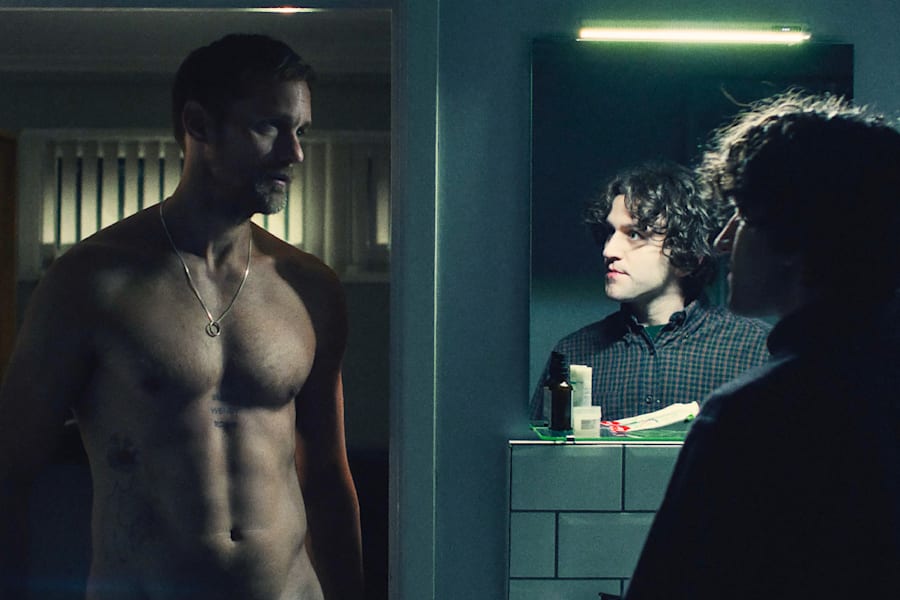What is aftercare? How to nurture emotional wellbeing after sex and BDSM play

After sex, especially physically or mentally intense sex, our bodies and brains experience a come down. Ensuring the mental wellbeing of yourself and your partner is crucial—whether you’re engaging in BDSM and kink play, or something different. Aftercare is for all.
Traditionally practiced in the kink world, aftercare is an imperative part of sex. A lot of emotion goes into giving and receiving in any kind of scene, especially those that involve mental or physical power exchanges. But even if you’re just getting down to some regular “vanilla” fun, taking care of yourself and your partner(s) after sex is just as important.
That’s where aftercare comes in: It’s a chance for you and your partner(s) to communicate your physical and emotional needs, to prioritize your wellbeing, and to further deepen intimacy and connection. Think: cuddling, pillow talk, or showering together. For BDSM and kink scenes, group sex, and non-monogamous relationships, aftercare might look a little different.
You might have seen “aftercare” tagged as a desire on some Feeld profiles, and you may want to add it to your own—which is a great way of aligning with others who have the same interests and priorities. As of 2025, almost 1 in 11 Feeld members list aftercare as a specific desire, so there are plenty of folks out there who get it. Still, aftercare is for everybody to take part in. Read on to find out about the benefits of aftercare, how to practice physical and emotional aftercare, and why aftercare is especially important in BDSM dynamics.
What is aftercare?
As explained by psychosexual psychotherapist Jordan Dixon, “Aftercare is the intentional care partners give each other after sex or kink play, addressing emotional, physical, and psychological needs. It can involve physical soothing, emotional processing, or simply being present.”
Anybody can practice aftercare, and it’s likely to be something you already do unconsciously—like cuddling after sex, talking to your partner(s) about how they’re feeling, or showering together.
It’s absolutely something that can be practiced after any and all sexual encounters, no matter how “vanilla.”. However, as Dixon adds, aftercare “is particularly central in kink/BDSM communities, where scenes may involve power exchange, pain, or emotional intensity that can leave people feeling raw or vulnerable.”
As for a helpful way to frame aftercare, Dixon notes that it’s about “closing the experience in a way that restores safety, connection, and trust.”
For many people, lots of focus is placed on foreplay, and on what happens during sex, so it makes sense to pay proper attention to what happens afterwards, too. If you were working out, you’d do a warm up and a cool down, so why not apply that same logic to sex, too?
What are the benefits of aftercare, especially in BDSM?
Aftercare offers a whole range of advantages; at its core, it’s about mutual care between yourself and your partner(s). Dixon breaks down some of the aftercare benefits:
Emotional regulation
Aftercare “helps partners downshift from heightened states of arousal or stress,” Dixon explains. Put simply, as much as you need to warm up in order to feel properly into the moment, you need to transition out of it, too.
Spending time together after sex can also help to reduce anxiety, providing reassurance (if needed) and re-establishing connection. If your partner is feeling anxious, ask how you can best support them—whether that’s through verbal reassurance, physical touch, or something different.
When it comes to more intense or kink-focused experiences, folks can be left feeling “raw, overstimulated, or in altered states.”
“Aftercare helps soothe the nervous system and can foster a sense of safety,” Dixon continues.
Safety and trust
“Aftercare reinforces consent culture and demonstrates mutual care, which can deepen intimacy and attachment security,” Dixon explains. What’s more, it’s also a great way to foster more feelings of connection with your partner(s), as well as being a chance to check-in about how you’re feeling, and to debrief what you liked and didn’t like about the experience.
These types of check-ins are always important, but they’re especially significant when it comes to BDSM and kink scenarios. “Processing feelings and sensations after intense play reduces shame, confusion, or unprocessed emotion,” Dixon notes, making the “debrief” all the more crucial.
Reducing “drop”
It’s normal to experience a bit of a “comedown” after sex. Our bodies release hormones like oxytocin and dopamine in the moment so, when it’s over, it’s common to feel a shift in mood or energy.
In BDSM situations, this comedown can often feel more intense, sometimes referred to as “sub drop” or “top drop.” Dixon frames this as “a post-scene low after the endorphin/adrenaline high,” and adds that aftercare can mitigate such feelings by offering grounding and reassurance. To find out more about “sub drop” after sex, take a look at our guide to subspace.
As Dixon adds, “Aftercare is part of the ethical framework of kink which honors consent, nurtures trust, and reinforces that scenes are built on mutual respect, not real harm.”
For some people, this drop or comedown can feel even more intense—sometimes referred to as post-coital dysphoria. Dixon explains that “Post-coital dysphoria is when people feel sad, anxious, [or] irritable after sex even when it was consensual and pleasurable,” which might be down to hormonal shifts, psychological vulnerability, or prior trauma history. However you’re feeling after sex, remember that it’s totally valid, so make sure to prioritize compassion and understanding—both for yourself and your partner(s).

How to practice aftercare
Not every encounter has to finish with an earnest “how was it for you?” or a deep dive into our inner psyches. It’s about learning what works for you to make sure that you’re in the right headspace after sex that matters.
Here’s some more practical guidance on how to make aftercare happen, and what it might look like for you.
Plan ahead
As we’ve established, everyone's needs are different; for some a cuddle and a kiss might be all that they need after sex to come back down to reality and reconnect. For others, you might fancy a shower together, or roll around in the dirty sheets and have a detailed breakdown.
What is important is that you plan what you’re going to do ahead of time so that you both feel connected and happy. It doesn’t even need to be a set in stone, especially if you aren’t that close or if it’s a casual encounter. Just a “you up for a cuddle/a chat/watching a movie after?” is simple enough. That way, you know what to expect, and have the chance to communicate what you’d like.
If your schedule’s on the busier side, make sure you build in some aftercare time whenever you’re planning to be intimate. And if there’s something you need to make aftercare happen—like snacks in the cupboard or oil for a massage—it’s a good idea to have that prepared.
As well as discussing aftercare in advance, Dixon adds that it’s important to stay flexible. Remember that your partner’s needs (and your own) can change from day to day, or from scene to scene.
Physical aftercare
Chances are, you’re probably practicing a bunch of physical aftercare already. Physical aftercare can include:
- Rehydrating and making sure everyone drinks water
- Peeing after sex (especially to prevent UTIs)
- Cleaning up yourselves and any toys used
- Showering together
- Cuddling, kissing, or giving a massage
- Napping or sleeping together
- Watching TV or a movie
Some situations—especially BDSM scenes—might require practical aftercare like applying lotion or tending to marks, as Dixon points out. It's also important to consider whether anyone has any specific needs for their body, disability, or circumstances—and if there are any minor injuries to tend to.
The options are not exhaustive, and there may be something different that you or your partner(s) want to do. Plus, while lots of aftercare hinges on closeness, some people may prefer to have some space or quiet time after sex.
The most important thing is to communicate your desires and needs, and to ask your partner(s) for theirs—and go from there.
Emotional aftercare
Physical and emotional aftercare is pretty intertwined. Still, there are ways to take care of each other after sex that don’t just revolve around practical tasks. Mental aftercare can include:
- Classic “pillow talk”; this doesn’t necessarily need to be in relation to sex, and can just be an opportunity to chat while feeling close to each other.
- Debriefing or talking about sex. Some people may want to chat through what just happened. Oftentimes, this will be positive, and will be especially helpful for people who like words of affirmation. But remember that it’s OK to give less positive feedback too. You might want to talk about what you liked and didn’t like, what you want to do again and what you don’t, plus anything you’d like to try next time. Try saying: “I really liked it when you used that toy on me,” or “I'm glad we tried that position but I don't think it's something I enjoyed enough to do again.”
- Communicating your own needs: If there’s a type of aftercare you’d like to be happening that isn’t, now’s the time to voice that. And the same goes for any aftercare you’re not enjoying. If the shower just feels awkward and cold, it’s OK to cut it short.
Digital aftercare
Aftercare doesn’t just need to happen in the moments right after sex; it can be continuous, and remote.
Dixon suggests planning a follow-up check-in, which might take place hours or days later—and can be especially helpful for those who are prone to drop. That might be as simple as texting or calling partner(s) to see how they’re feeling, or to reiterate what a great time you had.
Self-aftercare
While a lot of aftercare is focused on what you do with a partner, it’s also something you can practice on your own. As Dixon notes, “Solo players or casual partners may need rituals for grounding themselves. Planning and creating time to decompress on your own to reflect and understand emotions can be helpful.”
The good news is: aftercare doesn’t need to be complicated or elaborate. It can be simple, natural, and affirming. Whether you’re in a relationship, having sex casually, in a group dynamic, or engaging in a BDSM scene, aftercare should still be a part of your plans.
As Dixon says, “Aftercare can offer us important tools even outside of kink. Post-sex rituals like cuddling, gentle talk, and shared stillness can soothe emotional vulnerability and foster connection between participants.”
As with all aspects of intimacy, your focus should be on communicating your needs, and listening to your partner(s) when they communicate theirs.
Aftercare should always be a part of sex. Still, if you want to signpost it as a specific desire—either something you love to practice or something you’re looking for—you can make that known by listing it as a desire on your Feeld profile. And if you’re searching for others to connect with who get it, we’re waiting for you.


